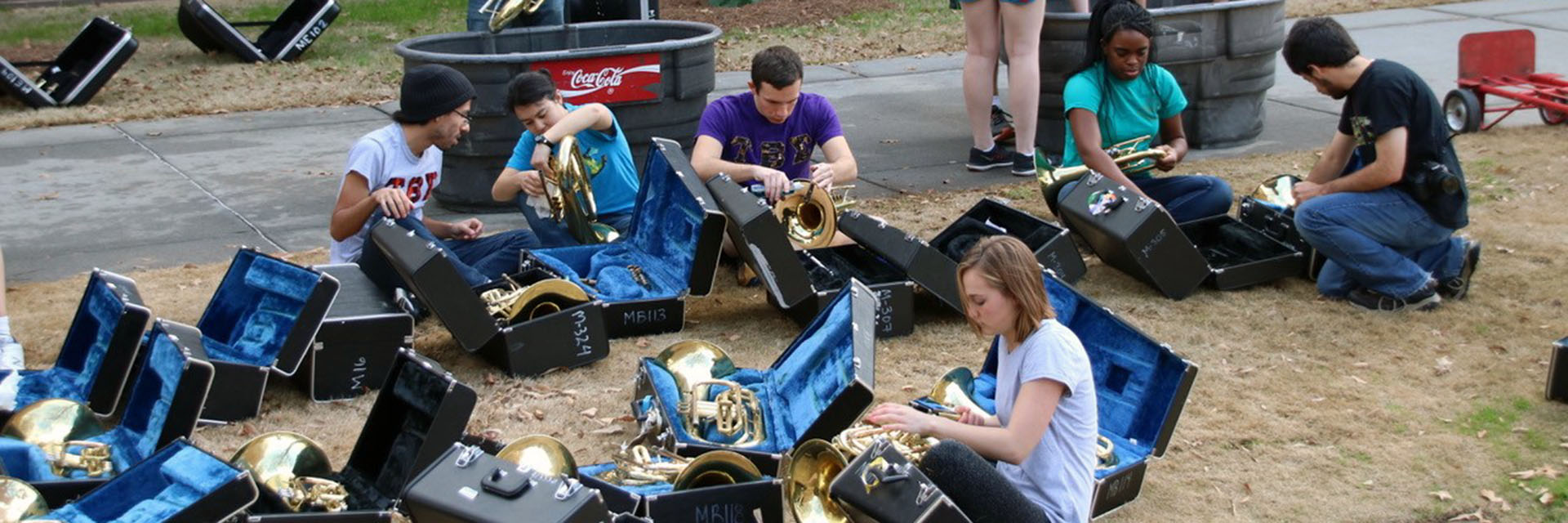
Your Ramblin' Wreck. Our Future.
The Georgia Tech School of Music welcomes a variety of Georgia Tech students every day — from rock guitarists to violinists to singers to sousaphone players.
Not only does the School of Music offer students traditional opportunities to further their musical interests, the School also offers undergraduate and graduate programs in music technology that equip students to envision and create the future of the music industry. Through a variety of backgrounds and experiences the very diverse student body in the School of Music, the courses, ensembles, orchestras and choral groups create a rich and eclectic environment for innovation and exploration in music and music technology.
For more information on how you can help our students, please contact Kelly Smith, the Director of Development within the College of Design.
To give to the School directly, click on the link below. When you enter your gift, select "Other designation" and specify it as "School of Music".